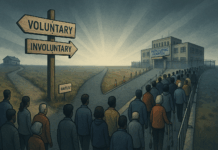From STAT (paid subscription required): “In the last decade, the federal government has provided $146 million to organizations that provide outpatient care to people with serious mental health conditions like psychosis. The people were ordered to undergo treatment so they wouldn’t be a threat to themselves or society.
Did it work?
The efficacy of AOT is a pressing question for mental health providers and the nearly 15 million adults in the United States with a serious mental illness. The GAO review lobs a giant question mark into an ongoing societal discussion of whether more federal dollars should fund a controversial treatment option — especially for a population facing worsening health outcomes, increased medical costs, and higher rates of involvement with the criminal justice system.
“The GAO report underscores that assessments of assisted outpatient treatment programs/involuntary outpatient commitment remain inconclusive,” said Sakeena Trice, a senior staff attorney on New York Lawyers for Public Interest’s Disability Justice team. “To protect civil rights and address racial disparities in implementation, mental health care and policy should shift toward culturally competent, community-based voluntary care that centers the lived experiences of those impacted.”
AOT typically consists of a judge mandating that a person with a serious mental illness adhere to treatment for a given time period. Health providers often petition the court for this, but it can also be parole officers, parents — in New York, even a roommate can lobby a judge for treatment. But many of the particulars in eligibility, methods, and timelines vary widely among states. The GAO report cites this heterogeneity as one of the main reasons for calling earlier federal reports “inconclusive.”















